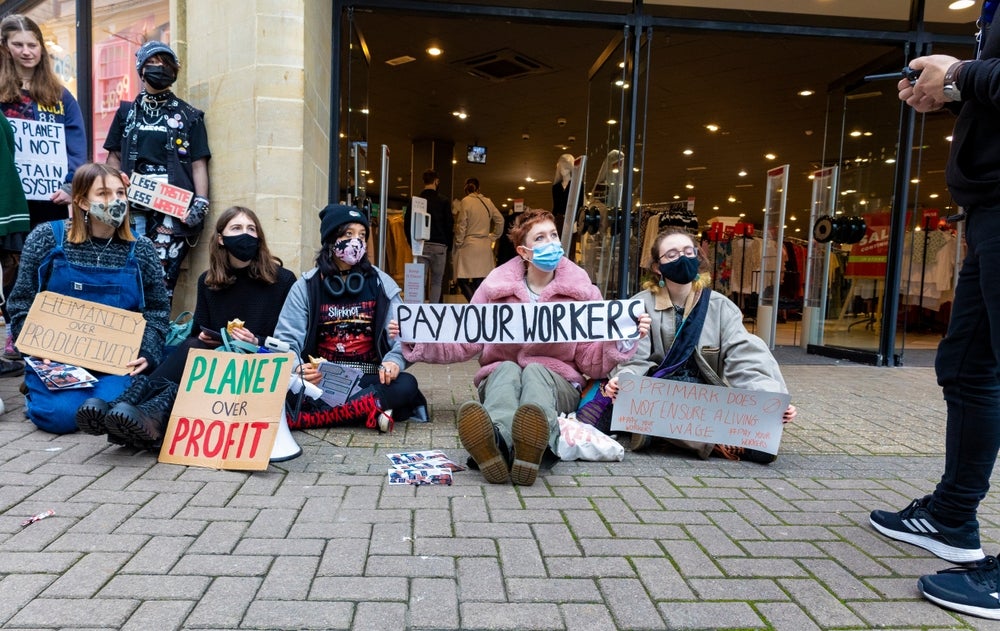The Industry We Want has released its latest Industry Dashboard scoring progress in the apparel sector across a number of key pillars of change ranging from wages, and purchasing practices to greenhouse gas emissions.
The organisation called for a “collaborative approach” to solving the complex issues across its pillars, as it revealed a growing wage gap between legal minimum wages and living wages in garment manufacturing countries.
This was echoed by calls from the Better Buying Institute calling for better communication between suppliers and buyers to improve practices in the sector.
While its latest Better Buying Partnership Index (BBPI) results showed some progress, particularly for repeat subscribers to the index, Dr Marsha Dickson, president and co-founder at the Better Buying Institute, told Just Style exclusively that a bigger shift is needed in the longer term.
She admitted the cost of fashion will eventually have to increase to meet the increased costs associated with better practices, and stated: “We have to reconnect the actual costs of producing and supplying products with the price that’s being paid."
Crucially, she highlighted: “If suppliers aren’t being paid enough to cover the costs, or if there are so many inefficiencies created and increased costs […] how in the world are they ever going to pay a living wage?”
The cost of poor due diligence in apparel
An alleged attack on union organisers and activists at a garment factory in Bangladesh provided an example of the negative impact that poor relations between suppliers, brands and workers can have in reality.
The Clean Clothes Campaign said: “It is of vital importance that all brands that source from this factory ensure that the management halts all violence and threats against its workers, the union, and its organisers immediately.”
However, this story serves as yet another warning on what a lack of due diligence can mean in practice, but how many more examples do we need before we see real change?
Top stories on Just Style this week
Garment Industry Dashboard 2024 scores out – brands urged to step up
The Industry We Want (TIWW), a multi-stakeholder initiative by Fair Wear, the Ethical Trading Initiative (ETI), and the Sustainable Apparel Coalition (SAC), has released the 2024 scores of its Industry Dashboard which showed a lack of consistent progress across the industry and a critical need for shared supply chain responsibility and collaboration.
H&M Group testing ‘disruptive’ tech to reduce eco impact of dyeing process
Swedish fashion conglomerate H&M Group is testing a new "waterless" dyeing alternative by Indian start-up Deven Supercriticals at its partner factory Arvind Ltd to reduce energy, water and chemical use during the dyeing process.
Apparel brands may rethink Myanmar sourcing as conscription rules enforced
The Myanmar Centre for Responsible Business tells Just Style apparel brands will need to prioritise staff safety as it warns new conscription rules are likely to deter brands.
Shein US IPO plans threatened by China operations disclosure failures
US senator Marco Rubio has written to the Securities and Exchange Commission (SEC) in the US, urging for "additional disclosures" from fast-fashion giant Shein regarding its business operations and associated risks as a condition for entry into the US public securities market.
Textiles Circularity Centre opens interactive sustainable exhibition in London
The UKRI Interdisciplinary Textiles Circularity Centre (TCC) is bringing its research on sustainable apparel and textiles to an exhibition at Rich Mix, London from 23 February to 21 March 2024.
Adidas joins Canopy to protect forests, reduce carbon footprint
German sports brand Adidas has partnered with non-profit environmental organisation Canopy to ensure its textiles, paper and paper packaging are free of fibre sourced from climate-critical forests.
Avery Dennison unveils digital ID supply chain solutions for apparel
Materials science company Avery Dennison is set to showcase its advancements in digital ID technology to give clothing manufacturers and retailers real-time insights on how it aims to "seamlessly link" every aspect of the supply chain.
Bangladesh readymade garment sector pushes for government backing in green transition
The Bangladesh Garment Manufacturers and Exporters Association (BGMEA) is urging the government to bolster support for the ready-made garment (RMG) sector's green transition so it can position itself as a sustainable garment manufacturing hub.









